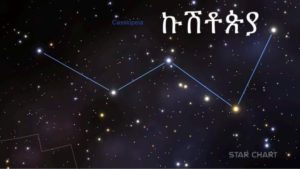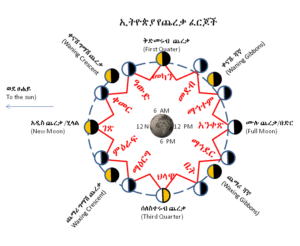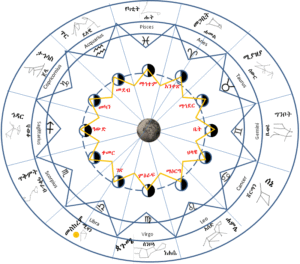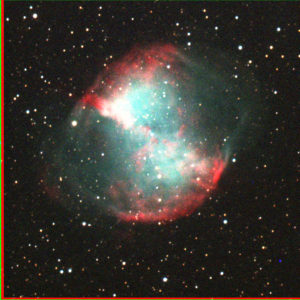Space Generation

[Eclipse 2020][Experiment][For Teachers][For Students]
[Greeks and Ethiopia][Ethiopia and The Arabs][Ethiopia and The Sabaeans][Ethiopia and its Astronomy][Ethiopia Timeline][Astronomy Picture of the Day]
1st ESAN Solstice Conference on Astronomy, Astrophysics and Space Science June 20, 2020
ምስጢረ ከዋክብት-ምስጢረ ከዋክብት -ስለ ሰማየ ሰማያት አወቃቀርና ጥናት እንማር
Theme: Advances in Astronomy From Book of Enoch to ETRSS-1 and Beyond
ZOOM he First ESAN Solstice Conference on Astronomy, Astrophysics and Space Science Time: Jun 20, 2020 08:00 AM Eastern Time (US and Canada)
Join Zoom Meeting
https://us02web.zoom.us/j/
Meeting ID: 895 4640 1863
Password: 632202
Conference co-Chairs (Abebe Kebede, Kassahun Betre)
Conference committee
Dejene Zewdie, Wanda Diaz, Abebe Kebede, Solomon Tessema, Ghion Ashenafi, Shambel Sahlu, Etsegenet Gentachew, Tilahun Getachew, Asrat Gualle,Dugasa Belay, Getachew wollel, Tsegaye Demsis Lemma, Betelehem Bilata, Jerusalem Tamrat, Seblu H. Negu, Kassahun Betre , Wanda Diaz
Publication committee (Dejene Zewdie, Wanda Diaz)
Proceedings will appear at Scientific Ethiopian
Call for papers
- Deadline: Wednesday June 17.
- You are invited to submit your conference paper. Please include
- Title:
- Your Affiliation
- Abstract:
What will happen to your paper ?
If selected you will present your paper at this at our Solstice Zoom conference on June 20.. Your paper will also be published in our “Scientific Ethiopian“, No question asked. with minor editing. The following are the area of primary research interests. When you submit your paper make sure to identify which group you belong to. Please send the paper to Abekebde@gmail.com
Topics of Interest
Group A: Earth and Planetary Science
Group B: Solar and Stellar Astrophysics
Solomon Belay Tesema, Seblu Humne Negu, Dugasa Belay Zeleke)
Group C: Extragalactic Astrophysics Dejene Zewdie Woldeyes, Tilahun Getachew Woreta, srate Gaulle Weldegebreal, Jerusalem Tamirat Teklu)
Group D: Cosmology, High energy astrophysics and Astroparticles (Kassahun Haileyesus Betre, Beatriz García, Shambel Sahlu)
Group E: Space Technology (Ghion Ashenafi, Tsegaye Demisis Lemma)
Group F: Cross-cutting: Ethno-Astronomy or Indigenous Astronomy, Education, Resource access and adaptation (Abebe Kebede , Wanda Diaz, Beatriz Garcia)
The dream of exploring outer space is nature’s gift to humanity. The beauty and complexity of the skies inspire the young and the old. Beyond  cultures, and language barriers people draw the their inspiration, belief systems and mythologies from the amazing skies about them. Before the advent of telescopes thinkers documented the motion of stars and planets, the sun, the moon and the Earth. As their contemporaries, Ethiopians named stars, the constellations and their positions and relationship between the position of the stars with change of the seasons. The understood the origin of eclipses and predicted them accurately. They developed the mathematical description of the magnitude scale. Recently Ethiopia built several optical and radio telescopes for deep
cultures, and language barriers people draw the their inspiration, belief systems and mythologies from the amazing skies about them. Before the advent of telescopes thinkers documented the motion of stars and planets, the sun, the moon and the Earth. As their contemporaries, Ethiopians named stars, the constellations and their positions and relationship between the position of the stars with change of the seasons. The understood the origin of eclipses and predicted them accurately. They developed the mathematical description of the magnitude scale. Recently Ethiopia built several optical and radio telescopes for deep  space and near space observation. The young astronomers and space scientists are involved in advanced fields of astronomy, astrophysics, cosmology, heliophysics and sun-earth connections. As their ancestors Ethiopians began exploring space, develop technologies to explore space and to exploit its benefits. We plan to conduct a series of conferences under the theme “ESAN Conference on Astronomy and Space Science” twice a year during the summer and winter solstice.
space and near space observation. The young astronomers and space scientists are involved in advanced fields of astronomy, astrophysics, cosmology, heliophysics and sun-earth connections. As their ancestors Ethiopians began exploring space, develop technologies to explore space and to exploit its benefits. We plan to conduct a series of conferences under the theme “ESAN Conference on Astronomy and Space Science” twice a year during the summer and winter solstice.
Objectives
1) Document the research and education activities in Ethiopia and Africa in the general fields of Astronomy and Space Science
2) Develop Conventions from Translation of Terminologies in the field of Astronomy and Space Science
3) Explore cultural astronomy and space science
4) Develop and Adapt education tools to ensure access to the field for all students
Subgroups
- Group A: Near Earth Space/Planetary Science /Solar system and exo-planets
- Group B: Astronomy and Astrophysics/Stellar Astrophysics/ High energy astrophysics and Astroparticles/Galaxies and Interstellar medium, Computational Stellar Astronomy
- Group C: Cosmology
- Group E: Space Technology
- Group F: Cross cutting: Ethno-Astronomy or
- Idegenous Astronomy, Cultural Astronomy (astronomy and world heritage)/Education,
- Resource access and adaptation
Specific subjects: Celestial mechanics, Cosmic rays and gamma astronomy, Cosmology, Earth-moon system, Earth’s surface, Extragalactic astronomy, Extrasolar planets, Heliospheric physics, Interstellar matter, Planets ionospheres & magnetospheres, Life sciences as related to space, Magnetospheric physics, Planets, comets, asteroids & dust, Scientific instrumentation, Solar and stellar physics, Solar terrestrial physics, Solar terrestrial relations, Interstellar terrestrial relations,Theoretical astrophysics, High-energy astrophysics, Particle astrophysics
Astronomy and Astrophysics (SPS I)
This course is the study of radiation from stars and nebulae to determine the basic stellar characteristics, the composition and physical conditions of matter in and between the stars. It also investigates the structural properties of our milky-way galaxy, as evidenced by the spatial distribution of dust, gas, stars and magnetic fields. There will be several lectures on observational astronomy, computational astrophysics, and access to telescopes. There will be at least three lectures on Ethiopian/African Astronomy and its role in contemporary astronomy.
Near Earth Space (SPC II)
The influences of the solar activity on the terrestrial space (the Earth’s ionosphere). How does the 11 year sunspot cycle control ionization content, electric fields, and plasma transport in the Earth’s ionosphere (emphasis on equatorial ionosphere). How does the main plasma instabilities processes of the low-latitude and equatorial ionospheres (equatorial electrojet, the equatorial ionization anomaly, and the equatorial spread F) respond to the sunspot variability? How does the Earth’s ionosphere respond to geomagnetic storms triggered by coronal mass ejection, solar flares, etc.? Space weather effects of solar activity. Magnetometer, satellite, radar/ionosonde, VHF/GPS scintillation data, animations, and models will be most likely used in the presentation.
VIII: Workshop on Aerospace and Satellite Technology
In Ethiopia education and research are growing at the rate consistent with its national mission to become a middle-income country. The emphasis in STEM education and advanced research and training at doctoral level are fueling the country’s economy at a higher rate than many sub-Saharan African countries. There are advanced research activities in biotechnology, nano-technology, space and astrophysical sciences in many flagship universities in the country. Due to the efforts of the Ministry of Science and Technology and South Korean institutions these advances are bearing results in student training at PhD level, and fully functional advanced research laboratories. Aerospace research is just beginning to take shape in Ethiopia with the start of Aerospace Technology research center and the establishment of small-scale satellite research, and major space observatories. Ethiopia embarked in these endeavors for the purpose of exploiting the technologies and to achieve its development goals in research, education and quality of life. In particular emphasis of this workshop will be in the area of Aerospace Science and Technology and Unmanned Aerial Vehicles. The workshop will feature presentations and discussions on the values of Aerospace Science and Technology and Unmanned Aerial Vehicles for civilian as well as military uses. It is designed for aerospace students, staff, researchers and administrators. There will be panel discussion among participants to discuss the opportunities and challenges in the field. The workshop will also promote interdisciplinary understanding of aerospace systems, their underlying science and technology, and their applications to government and commercial endeavors. This workshop brings together students, experts, scientists and researchers in a collaborative environment to present and discuss issues related to Aerospace Science, Engineering and, technology. It provides a platform for the next generation to be able to share their respective knowledge and experiences and to develop new ideas and to improve the level of air defense, security and intelligence gathering of our Nation. Experts and researchers of the field will pinpoint the current as well as the future directions of Aerospace Science, Engineering and, Technology specifically the advantages of satellite and and Unmanned Aerial Vehicles for developing countries.
Open/Free Tools for Teaching & Research in Sciences
ICT has the potential to improve the quality of education, & prepare better skilled workforce for the new global economies. Realizing the potentials of ICT for education & research/development, the University of Gondar is carrying on ICT related projects & infrastructure developments. The new science curricula of Ethiopian Higher Learning Institutes also incorporates improved (technology supported) instructional methodologies & better assessment techniques as their key features. One of the four elements of Microsoft’s Vision of 21st Century Learning, 21st Century Skills, includes training teachers in exploiting ICT to improve teaching & learning; supporting lifelong learning; assisting with development of digital curricula & learning communities; & conducting researches. Improving quality of education & producing well skilled workforce therefore requires competent instructors in technological skills among other factors. Hence, this training will attempt to introduce instructors to computational skills, & try to develop their competencies in using technology tools to improve teaching – learning & research skills. In this course the participant will gain hands-on experience on the latest technologies in active learning and be exposed to some of the best “Open/Free Tools for Teaching & Research in Sciences. Integrating virtual labs & interactive simulation with lessons will be demonstrated.
Integrating Laboratory Activities with Science Curriculum
Besides testing the validity and limitations of theoretical concepts, experimental activities help students to develop knowledge & skills that will be used in devising their own laboratory research programs to determine new knowledge. Laboratory sessions are by their very nature require active engagement of students, support student-centered approach, and deliver a wide range of learning outcomes as a result. Though experiments should always be an integral part of the science curriculum, many high schools do not support their lessons with laboratory classes. Hence, most students joining science departments lack basic practical skills & familiarity with basic lab equipment. Lack of laboratory facilities & lack of proper laboratory training are pointed as main reasons for the above challenges. Thus, this session will provide intensive practical training for schools teachers. They are expected to participate actively in planning and carrying out experimental investigations, and in analyzing & discussing results of their investigations. Finally they will demonstrate how to integrate experiments & demonstration with their lessons.
Adaptive Technology & Special Need Education
This course focuses on the intervention of Adapting teaching material for inclusive education to meet EFA’s (Education For All) goals The role of Ethiopian Adaptive Technology Centre for the Blind (ATCB) in the development of computerized Ethiopic Braille to blind students will be discussed. The discussion will be supported by demonstration on Computerized Braille, Ethiopic Speech Synthesizer, Sound Engineering & FOSS for Visually Impaired, and Process of Computerized Braille Production in Ethiopia.
Remote Sensing
Remote sensing has a growing relevance in the modern information society. It represents a key technology as part of the aerospace industry and bears increasing economic relevance. Furthermore, remote sensing exceedingly influences everyday life, ranging from weather forecasts to reports on climate change or natural disasters. Remote sensing makes it possible to collect data on dangerous or inaccessible areas. Its applications include monitoring deforestation, glacial features, and depth sounding of coastal and ocean depths. It also replaces costly and slow data collection on the ground; orbital platforms in conjunction with aerial or ground-based platforms, provides enough information to monitor trends such as El Niño and other natural phenomena. Other uses include natural resource management, land usage and conservation, city planning, archaeological investigations, national security and military observation, and geomorphological surveying.The Workshop on Remote Sensing will be composed of two parts: Theoretical Discussion on Remote Sensing and Practical Training on Digital Image Processing. The theoretical discussion on remote sensing will provide background & discussion on the following topics:
Remote Sensing Data Division & Acquisition Techniques;
Most Popular Remote Sensing Platforms;
Remote Sensing Resolutions;
Application of Remote Sensing
The practical training will focus on remote sensing digital image processing using state-of-the-art software. Demonstrations of different techniques in remote sensing digital image processing will be accompanied by explanations of algorithm development. The following activities are included in the practical training:
Extraction of Initial Statistics of the Remote Sensing Data;
Digital Image Enhancement;
Extraction of Thematic Information;
Digital Change Detection;
Special Remote Sensing Digital Image Processing Approaches.
Public Lectures
1) Science and Development,
2) Women in Science and Technology
3) Information sessions about ICTP and its role in international science
4) Information Session on international scholarships and graduate school applications processes.
5) Lecture on Africanization/Ethiopianization of STEM, and discussions on STEAM resources that can be accessed from remote sites.
